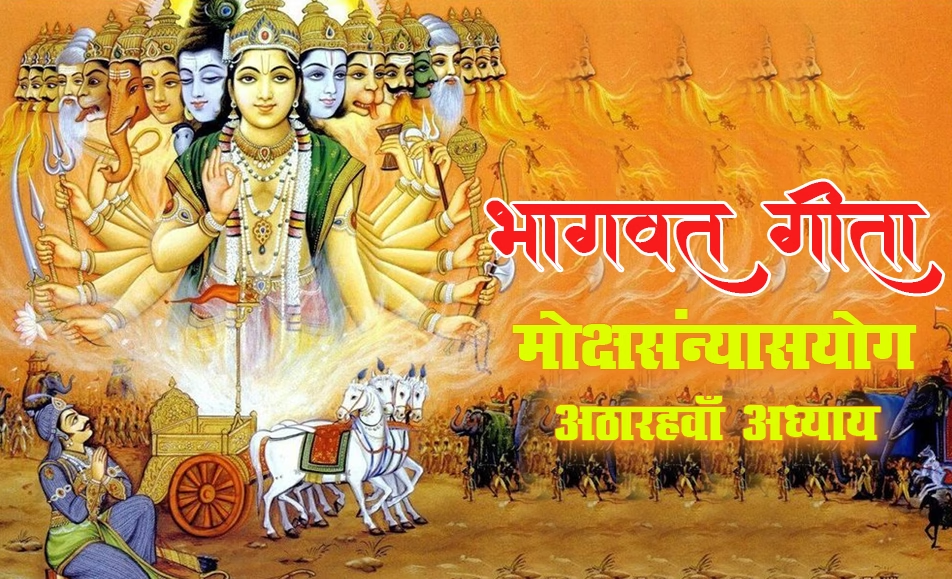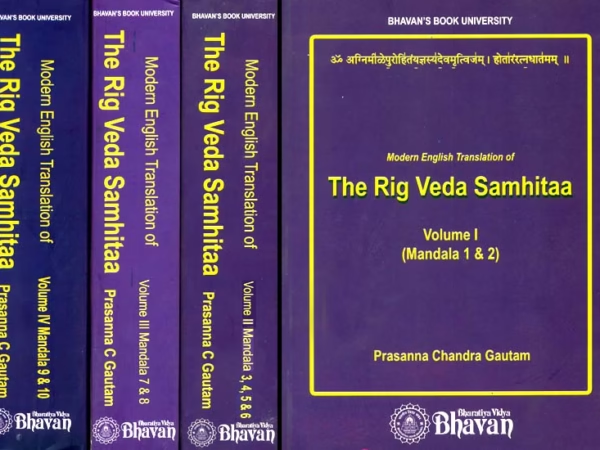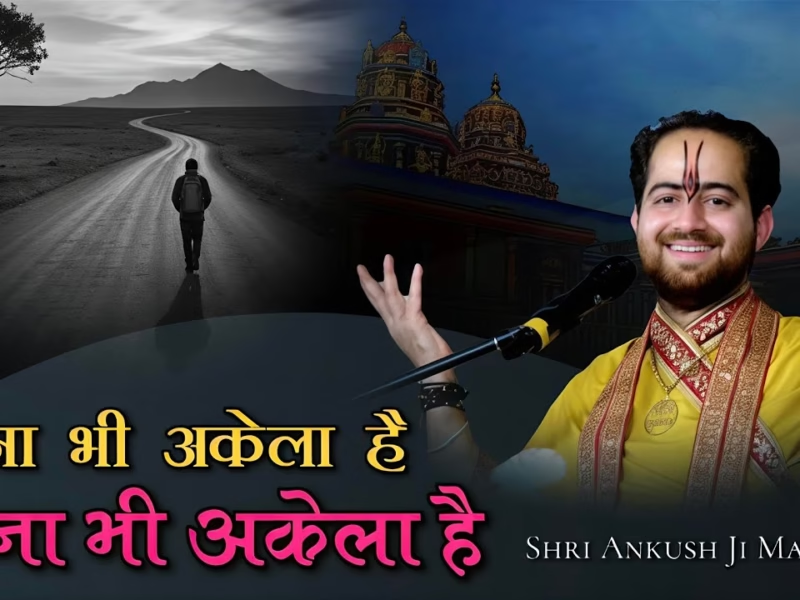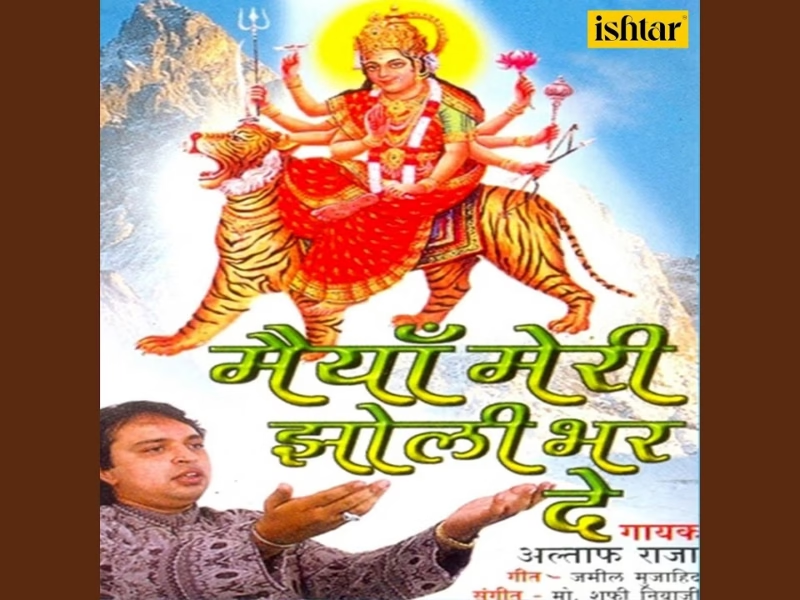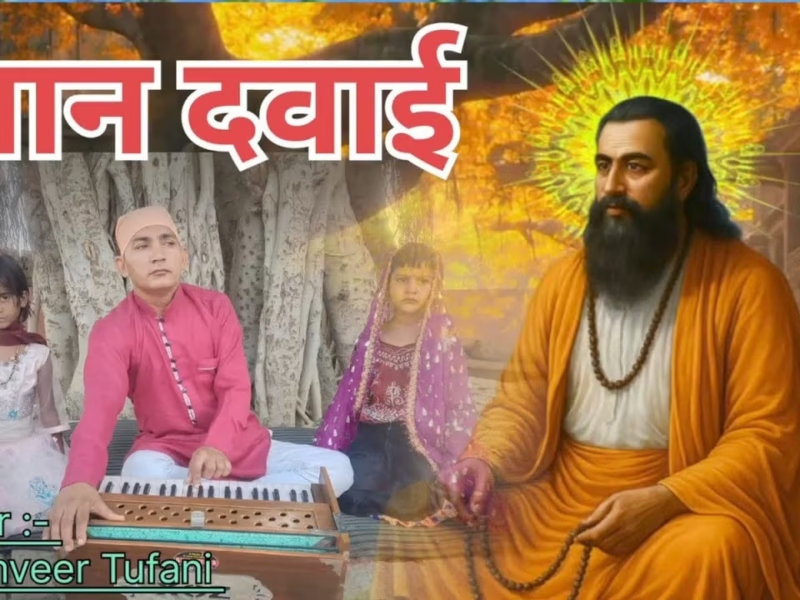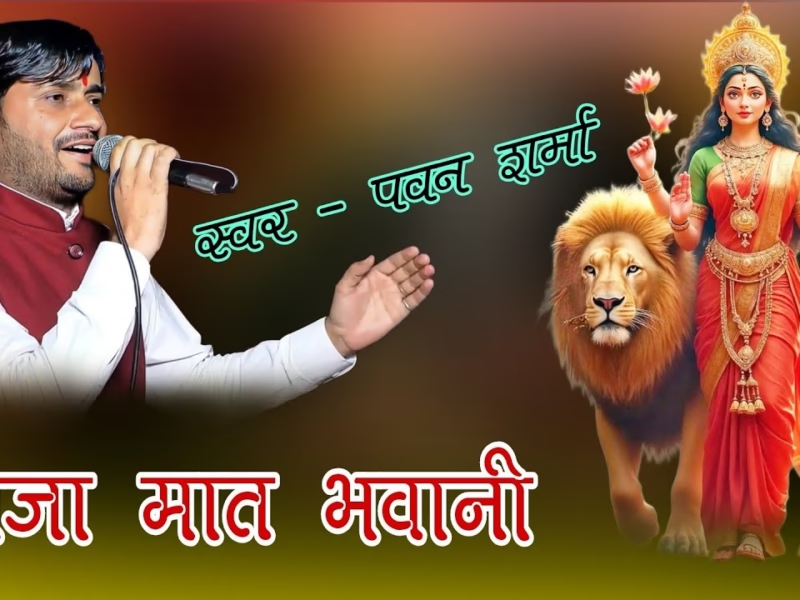Chapter 18 – The Bhagawad Gita
(त्याग का विषय)अर्जुन उवाच
सन्न्यासस्य महाबाहो तत्त्वमिच्छामि वेदितुम् ।
त्यागस्य च हृषीकेश पृथक्केशिनिषूदन ॥ 18.1
Arjun said: O mighty-armed Krishna, I wish to understand the nature of sanyās (renunciation of actions) and tyāg (renunciation of the desire for the fruits of actions). O Hrishikesh, I also wish to know the distinction between the two, O Keshinisudan.
श्रीभगवानुवाचकाम्यानां कर्मणा न्यासं सन्न्यासं कवयो विदुः ।
सर्वकर्मफलत्यागं प्राहुस्त्यागं विचक्षणाः ॥ 18.2
The Supreme Divine Personality said: Giving up of actions motivated by desire is what the wise understand as sanyās. Relinquishing the fruits of all actions is what the learned declare to be tyāg.
त्याज्यं दोषवदित्येके कर्म प्राहुर्मनीषिणः ।
यज्ञदानतपःकर्म न त्याज्यमिति चापरे ॥ 18.3
Some learned people declare that all kinds of actions should be given up as evil, while others maintain that acts of sacrifice, charity, and penance should never be abandoned.
निश्चयं श्रृणु में तत्र त्यागे भरतसत्तम ।
त्यागो हि पुरुषव्याघ्र त्रिविधः सम्प्रकीर्तितः ॥ 18.4
Now hear my conclusion on the subject of renunciation, O tiger amongst men, for renunciation has been declared to be of three kinds.
यज्ञदानतपःकर्म न त्याज्यं कार्यमेव तत् ।
यज्ञो दानं तपश्चैव पावनानि मनीषिणाम् ॥ 18.5
Actions based upon sacrifice, charity, and penance should never be abandoned; they must certainly be performed. Indeed, acts of sacrifice, charity, and penance are purifying even for those who are wise.
एतान्यपि तु कर्माणि सङ्गं त्यक्त्वा फलानि च ।
कर्तव्यानीति में पार्थ निश्चितं मतमुत्तमम् ॥ 18.6
These activities must be performed without attachment and expectation for rewards. This is my definite and supreme verdict, O Arjun.
नियतस्य तु सन्न्यासः कर्मणो नोपपद्यते ।
मोहात्तस्य परित्यागस्तामसः परिकीर्तितः ॥ 18.7
Prescribed duties should never be renounced. Such deluded renunciation is said to be in the mode of ignorance.
दुःखमित्येव यत्कर्म कायक्लेशभयात्त्यजेत् ।
स कृत्वा राजसं त्यागं नैव त्यागफलं लभेत् ॥ 18.8
To give up prescribed duties because they are troublesome or cause bodily discomfort is renunciation in the mode of passion. Such renunciation is never beneficial or elevating.
कार्यमित्येव यत्कर्म नियतं क्रियतेअर्जुन ।
सङ्गं त्यक्त्वा फलं चैव स त्यागः सात्त्विको मतः ॥ 18.9
When actions are taken in response to duty, Arjun, and one relinquishes attachment to any reward, it is considered renunciation in the nature of goodness.
न द्वेष्ट्यकुशलं कर्म कुशले नानुषज्जते ।
त्यागी सत्त्वसमाविष्टो मेधावी छिन्नसंशयः ॥ 18.10
Those who neither avoid disagreeable work nor seek work because it is agreeable are persons of true renunciation. They are endowed with the quality of the mode of goodness and have no doubts (about the nature of work).
न हि देहभृता शक्यं त्यक्तुं कर्माण्यशेषतः ।
यस्तु कर्मफलत्यागी स त्यागीत्यभिधीयते ॥ 18.11
For the embodied being, it is impossible to give up activities entirely. But those who relinquish the fruits of their actions are said to be truly renounced.
अनिष्टमिष्टं मिश्रं च त्रिविधं कर्मणः फलम् ।
भवत्यत्यागिनां प्रेत्य न तु सन्न्यासिनां क्वचित् ॥ 18.12
The three-fold fruits of actions—pleasant, unpleasant, and mixed—accrue even after death to those who are attached to personal reward. But, for those who renounce the fruits of their actions, there are no such results in the here or hereafter.
पञ्चैतानि महाबाहो कारणानि निबोध मे ।
साङ्ख्ये कृतान्ते प्रोक्तानि सिद्धये सर्वकर्मणाम् ॥ 18.13
O Arjun, now learn from me about the five factors that have been mentioned for the accomplishment of all actions in the doctrine of Sānkhya, which explains how to stop the reactions of karmas.
अधिष्ठानं तथा कर्ता करणं च पृथग्विधम् ।
विविधाश्च पृथक्चेष्टा दैवं चैवात्र पञ्चमम् ॥ 18.14
The body, the doer, the various senses, the many kinds of efforts, and Divine Providence—these are the five factors of action.
शरीरवाङ्मनोभिर्यत्कर्म प्रारभते नरः ।
न्याय्यं वा विपरीतं वा पञ्चैते तस्य हेतवः॥ 18.15
These five are the contributory factors for whatever action is performed, whether proper or improper, with body, speech, or mind.
तत्रैवं सति कर्तारमात्मानं केवलं तु यः ।
पश्यत्यकृतबुद्धित्वान्न स पश्यति दुर्मतिः ॥ 18.16
Those who do not understand this regard the soul as the only doer. With their impure intellects they cannot see things as they are.
यस्य नाहङ्कृतो भावो बुद्धिर्यस्य न लिप्यते ।
हत्वापि स इमाँल्लोकान्न हन्ति न निबध्यते ॥ 18.17
भावार्थ : जिस पुरुष के अन्तःकरण में ‘मैं कर्ता हूँ’ ऐसा भाव नहीं है तथा जिसकी बुद्धि सांसारिक पदार्थों में और कर्मों में लिपायमान नहीं होती, वह पुरुष इन सब लोकों को मारकर भी वास्तव में न तो मरता है और न पाप से बँधता है। (जैसे अग्नि, वायु और जल द्वारा प्रारब्धवश किसी प्राणी की हिंसा होती देखने में आए तो भी वह वास्तव में हिंसा नहीं है, वैसे ही जिस पुरुष का देह में अभिमान नहीं है और स्वार्थरहित केवल संसार के हित के लिए ही जिसकी सम्पूर्ण क्रियाएँ होती हैं, उस पुरुष के शरीर और इन्द्रियों द्वारा यदि किसी प्राणी की हिंसा होती हुई लोकदृष्टि में देखी जाए, तो भी वह वास्तव में हिंसा नहीं है क्योंकि आसक्ति, स्वार्थ और अहंकार के न होने से किसी प्राणी की हिंसा हो ही नहीं सकती तथा बिना कर्तृत्वाभिमान के किया हुआ कर्म वास्तव में अकर्म ही है, इसलिए वह पुरुष ‘पाप से नहीं बँधता’।)॥17॥
ज्ञानं ज्ञेयं परिज्ञाता त्रिविधा कर्मचोदना ।
करणं कर्म कर्तेति त्रिविधः कर्मसङ्ग्रहः ॥ 18.18
Knowledge, the object of knowledge, and the knower—these are the three factors that induce action. The instrument of action, the act itself, and the doer—these are the three constituents of action.
(तीनों गुणों के अनुसार ज्ञान, कर्म, कर्ता, बुद्धि, धृति और सुख के पृथक-पृथक भेद)
ज्ञानं कर्म च कर्ता च त्रिधैव गुणभेदतः ।
प्रोच्यते गुणसङ्ख्याने यथावच्छ्णु तान्यपि ॥ 18.19
Knowledge, action, and the doer are declared to be of three kinds in the Sānkhya philosophy, distinguished according to the three modes of material nature. Listen, and I will explain their distinctions to you.
सर्वभूतेषु येनैकं भावमव्ययमीक्षते ।
अविभक्तं विभक्तेषु तज्ज्ञानं विद्धि सात्त्विकम् ॥ 18.20
Understand that knowledge to be in the mode of goodness by which a person sees one undivided imperishable reality within all diverse living beings.
पृथक्त्वेन तु यज्ज्ञानं नानाभावान्पृथग्विधान् ।
वेत्ति सर्वेषु भूतेषु तज्ज्ञानं विद्धि राजसम् ॥ 18.21
That knowledge is to be considered in the mode of passion by which one sees the manifold living entities in diverse bodies as individual and unconnected.
यत्तु कृत्स्नवदेकस्मिन्कार्ये सक्तमहैतुकम्।
अतत्त्वार्थवदल्पंच तत्तामसमुदाहृतम्॥ 18.22
That knowledge is said to be in the mode of ignorance where one is engrossed in a fragmental concept as if it encompasses the whole, and which is neither grounded in reason nor based on the truth.
नियतं सङ्गरहितमरागद्वेषतः कृतम।
अफलप्रेप्सुना कर्म यत्तत्सात्त्विकमुच्यते॥ 18.23
Action that is in accordance with the scriptures, which is free from attachment and aversion, and which is done without desire for rewards, is in the mode of goodness.
यत्तु कामेप्सुना कर्म साहङ्कारेण वा पुनः।
क्रियते बहुलायासं तद्राजसमुदाहृतम्॥ 18.24
Action that is prompted by selfish desire, enacted with pride, and full of stress, is in the nature of passion.
अनुबन्धं क्षयं हिंसामनवेक्ष्य च पौरुषम् ।
मोहादारभ्यते कर्म यत्तत्तामसमुच्यते॥ 18.25
That action is declared to be in the mode of ignorance, which is begun out of delusion, without thought to one’s own ability, and disregarding consequences, loss, and injury to others.
मुक्तसङ्गोऽनहंवादी धृत्युत्साहसमन्वितः ।
सिद्धयसिद्धयोर्निर्विकारः कर्ता सात्त्विक उच्यते॥ 18.26
The performer is said to be in the mode of goodness, when he or she is free from egotism and attachment, endowed with enthusiasm and determination, and equipoised in success and failure.
रागी कर्मफलप्रेप्सुर्लुब्धो हिंसात्मकोऽशुचि: |
हर्षशोकान्वित: कर्ता राजस: परिकीर्तित: || 18.27
The performer is considered in the mode of passion when he or she craves the fruits of the work, is covetous, violent-natured, impure, and moved by joy and sorrow.
आयुक्तः प्राकृतः स्तब्धः शठोनैष्कृतिकोऽलसः ।
विषादी दीर्घसूत्री च कर्ता तामस उच्यते॥ 18.28
A performer in the mode of ignorance is one who is undisciplined, vulgar, stubborn, deceitful, slothful, despondent, and procrastinating.
बुद्धेर्भेदं धृतेश्चैव गुणतस्त्रिविधं श्रृणु ।
प्रोच्यमानमशेषेण पृथक्त्वेन धनंजय ॥ 18.29
That intellect which is shrouded in darkness, imagining irreligion to be religion, and perceiving untruth to be the truth, is of the nature of ignorance.
Hear now, O Arjun, of the distinctions of intellect and determination, according to the three modes of material nature, as I describe them in detail.
प्रवत्तिं च निवृत्तिं च कार्याकार्ये भयाभये।
बन्धं मोक्षं च या वेति बुद्धिः सा पार्थ सात्त्विकी ॥ 18.30
The intellect is said to be in the nature of goodness, O Parth, when it understands what is proper action and what is improper action, what is duty and what is non-duty, what is to be feared and what is not to be feared, what is binding and what is liberating.
यया धर्ममधर्मं च कार्यं चाकार्यमेव च।
अयथावत्प्रजानाति बुद्धिः सा पार्थ राजसी॥ 18.31
The intellect is considered in the mode of passion when it is confused between righteousness and unrighteousness, and cannot distinguish between right and wrong conduct.
अधर्मं धर्ममिति या मन्यते तमसावृता।
सर्वार्थान्विपरीतांश्च बुद्धिः सा पार्थ तामसी॥ 18.32
That intellect which is shrouded in darkness, imagining irreligion to be religion, and perceiving untruth to be the truth, is of the nature of ignorance.
धृत्या यया धारयते मनःप्राणेन्द्रियक्रियाः।
योगेनाव्यभिचारिण्या धृतिः सा पार्थ सात्त्विकी ॥ 18.33
The steadfast will that is developed through Yog, and which sustains the activities of the mind, the life-airs, and the senses, is said to be determination in the mode of goodness.
यया तु धर्मकामार्थान्धत्या धारयतेऽर्जुन।
प्रसङ्गेन फलाकाङ्क्षी धृतिः सा पार्थ राजसी॥ 18.34
he steadfast will by which one holds to duty, pleasures, and wealth, out of attachment and desire for rewards, is determination in the mode of passion.
यया स्वप्नं भयं शोकं विषादं मदमेव च।
न विमुञ्चति दुर्मेधा धृतिः सा पार्थ तामसी॥ 18.35
That unintelligent resolve is said to be determination in the mode of ignorance, in which one does not give up dreaming, fearing, grieving, despair, and conceit.
सुखं त्विदानीं त्रिविधं श्रृणु मे भरतर्षभ।
अभ्यासाद्रमते यत्र दुःखान्तं च निगच्छति॥ 18.36
And now hear from me, O Arjun, of the three kinds of happiness in which the embodied soul rejoices, and can even reach the end of all suffering.
यत्तदग्रे विषमिव परिणामेऽमृतोपमम्।
तत्सुखं सात्त्विकं प्रोक्तमात्मबुद्धिप्रसादजम्॥ 18.37
That which seems like poison at first, but tastes like nectar in the end, is said to be happiness in the mode of goodness. It is generated by the pure intellect that is situated in self-knowledge.
विषयेन्द्रियसंयोगाद्यत्तदग्रेऽमृतोपमम्।
परिणामे विषमिव तत्सुखं राजसं स्मृतम्॥ 18.38
Happiness is said to be in the mode of passion when it is derived from the contact of the senses with their objects. Such happiness is like nectar at first but poison at the end.
यदग्रे चानुबन्धे च सुखं मोहनमात्मनः।
निद्रालस्यप्रमादोत्थं तत्तामसमुदाहृतम्॥ 18.39
That happiness which covers the nature of the self from beginning to end, and which is derived from sleep, indolence, and negligence, is said to be in the mode of ignorance.
न तदस्ति पृथिव्यां वा दिवि देवेषु वा पुनः।
सत्त्वं प्रकृतिजैर्मुक्तं यदेभिःस्यात्त्रिभिर्गुणैः॥ 18.40
No living being on earth or the higher celestial abodes in this material realm is free from the influence of these three modes of nature.
(फल सहित वर्ण धर्म का विषय)
ब्राह्मणक्षत्रियविशां शूद्राणां च परन्तप।
कर्माणि प्रविभक्तानि स्वभावप्रभवैर्गुणैः॥ 18.41
The duties of the Brahmins, Kshatriyas, Vaishyas, and Shudras—are distributed according to their qualities, in accordance with their guṇas (and not by birth).
शमो दमस्तपः शौचं क्षान्तिरार्जवमेव च।
ज्ञानं विज्ञानमास्तिक्यं ब्रह्मकर्म स्वभावजम् ॥ 18.42
Tranquility, restraint, austerity, purity, patience, integrity, knowledge, wisdom, and belief in a hereafter—these are the intrinsic qualities of work for Brahmins.
शौर्यं तेजो धृतिर्दाक्ष्यं युद्धे चाप्यपलायनम्।
दानमीश्वरभावश्च क्षात्रं कर्म स्वभावजम्॥ 18.43
Valor, strength, fortitude, skill in weaponry, resolve never to retreat from battle, large-heartedness in charity, and leadership abilities, these are the natural qualities of work for Kshatriyas.
कृषिगौरक्ष्यवाणिज्यं वैश्यकर्म स्वभावजम्।
परिचर्यात्मकं कर्म शूद्रस्यापि स्वभावजम्॥ 18.44
भावार्थ : खेती, गोपालन और क्रय-विक्रय रूप सत्य व्यवहार (वस्तुओं के खरीदने और बेचने में तौल, नाप और गिनती आदि से कम देना अथवा अधिक लेना एवं वस्तु को बदलकर या एक वस्तु में दूसरी या खराब वस्तु मिलाकर दे देना अथवा अच्छी ले लेना तथा नफा, आढ़त और दलाली ठहराकर उससे अधिक दाम लेना या कम देना तथा झूठ, कपट, चोरी और जबरदस्ती से अथवा अन्य किसी प्रकार से दूसरों के हक को ग्रहण कर लेना इत्यादि दोषों से रहित जो सत्यतापूर्वक पवित्र वस्तुओं का व्यापार है उसका नाम ‘सत्य व्यवहार’ है।) ये वैश्य के स्वाभाविक कर्म हैं तथा सब वर्णों की सेवा करना शूद्र का भी स्वाभाविक कर्म है॥44॥
स्वे स्वे कर्मण्यभिरतः संसिद्धिं लभते नरः।
स्वकर्मनिरतः सिद्धिं यथा विन्दति तच्छृणु॥ 18.45
By fulfilling their duties, born of their innate qualities, human beings can attain perfection. Now hear from me how one can become perfect by discharging one’s prescribed duties.
यतः प्रवृत्तिर्भूतानां येन सर्वमिदं ततम्।
स्वकर्मणा तमभ्यर्च्य सिद्धिं विन्दति मानवः॥ 18.46
By performing one’s natural occupation, one worships the Creator from whom all living entities have come into being, and by whom the whole universe is pervaded. By such performance of work, a person easily attains perfection.
श्रेयान्स्वधर्मो विगुणः परधर्मात्स्वनुष्ठितात्।
स्वभावनियतं कर्म कुर्वन्नाप्नोति किल्बिषम्॥ 18.47
It is better to do one’s own dharma, even though imperfectly, than to do another’s dharma, even though perfectly. By doing one’s innate duties, a person does not incur sin.
सहजं कर्म कौन्तेय सदोषमपि न त्यजेत्।
सर्वारम्भा हि दोषेण धूमेनाग्निरिवावृताः॥ 18.48
One should not abandon duties born of one’s nature, even if one sees defects in them, O son of Kunti. Indeed, all endeavors are veiled by some evil, as fire is by smoke.
(ज्ञाननिष्ठा का विषय )
असक्तबुद्धिः सर्वत्र जितात्मा विगतस्पृहः।
नैष्कर्म्यसिद्धिं परमां सन्न्यासेनाधिगच्छति॥ 18.49
Those whose intellect is unattached everywhere, who have mastered the mind, and are free from desires by the practice of renunciation, attain the highest perfection of freedom from action.
सिद्धिं प्राप्तो यथा ब्रह्म तथाप्नोति निबोध मे।
समासेनैव कौन्तेय निष्ठा ज्ञानस्य या परा॥ 18.50
Hear from me briefly, O Arjun, and I shall explain how one, who has attained perfection (of cessation of actions), can also attain Brahman by being firmly fixed in transcendental knowledge.
अहङकारं बलं दर्पं कामं क्रोधं परिग्रहम्।
विमुच्य निर्ममः शान्तो ब्रह्मभूयाय कल्पते॥ 18.51
Endowed with a pure intellect, controlling the self by firmness, relinishing sound and other objects and abandoning attraction and hatred.
विविक्तसेवी लघ्वाशी यतवाक्कायमानस।
ध्यानयोगपरो त्यं वैराग्यं समुपाश्रितः॥ 18.52
Dwelling in solitude, eating but little, with speech, body and mind subdued, always engaged in meditation and concentration, resorting to dispassion.
बुद्ध्या विशुद्धया युक्तो धृत्यात्मानं नियम्य च।
शब्दादीन्विषयांस्त्यक्त्वा रागद्वेषौ व्युदस्य च॥ 18.53
Having abandoned egoism, strength, arrogance, desire, anger and covetousness, and free from the notion of ‘mine’ and peaceful, he is fit for becoming Brahman.
ब्रह्मभूतः प्रसन्नात्मा न शोचति न काङ्क्षति।
समः सर्वेषु भूतेषु मद्भक्तिं लभते पराम्॥ 18.54
One situated in the transcendental Brahman realization becomes mentally serene, neither grieving nor desiring. Being equitably disposed toward all living beings, such a yogi attains supreme devotion unto me.
भक्त्या मामभिजानाति यावान्यश्चास्मि तत्त्वतः।
ततो मां तत्त्वतो ज्ञात्वा विशते तदनन्तरम्॥ 18.55
Only by loving devotion to me does one come to know who I am in truth. Then, having come to know me, my devotee enters into full consciousness of me.
( भक्ति सहित कर्मयोग का विषय )
सर्वकर्माण्यपि सदा कुर्वाणो मद्व्यपाश्रयः।
मत्प्रसादादवाप्नोति शाश्वतं पदमव्ययम्॥ 18.56
My devotees, though performing all kinds of actions, take full refuge in me. By my grace, they attain the eternal and imperishable abode.
चेतसा सर्वकर्माणि मयि सन्न्यस्य मत्परः।
बुद्धियोगमुपाश्रित्य मच्चित्तः सततं भव॥ 18.57
Dedicate your every activity to me, making me your supreme goal. Taking shelter of the Yog of the intellect, keep your consciousness absorbed in me always.
मच्चित्तः सर्वदुर्गाणि मत्प्रसादात्तरिष्यसि।
अथ चेत्वमहाङ्कारान्न श्रोष्यसि विनङ्क्ष्यसि॥ 18.58
If you remember me always, by my grace you will overcome all obstacles and difficulties. But if, due to pride, you do not listen to my advice, you will perish.
यदहङ्कारमाश्रित्य न योत्स्य इति मन्यसे ।
मिथ्यैष व्यवसायस्ते प्रकृतिस्त्वां नियोक्ष्यति ॥ 18.59
If, motivated by pride, you think, “I shall not fight,” your decision will be in vain. Your own material (Kshatriya) nature will compel you to fight.
स्वभावजेन कौन्तेय निबद्धः स्वेन कर्मणा ।
कर्तुं नेच्छसि यन्मोहात्करिष्यस्यवशोऽपि तत् ॥ 18.60
O Arjun, that action which out of delusion you do not wish to do, you will be driven to do it by your own inclination, born of your own material natu
ईश्वरः सर्वभूतानां हृद्देशेऽजुर्न तिष्ठति।
भ्रामयन्सर्वभूतानि यन्त्रारुढानि मायया॥ 18.61
The Supreme Lord dwells in the hearts of all living beings, O Arjun. According to their karmas, he directs the wanderings of the souls, who are seated on a machine made of the material energy.
तमेव शरणं गच्छ सर्वभावेन भारत।
तत्प्रसादात्परां शान्तिं स्थानं प्राप्स्यसि शाश्वतम्॥ 18.62
Surrender exclusively unto him with your whole being, O Bharat. By his grace, you will attain perfect peace and the eternal abode.
इति ते ज्ञानमाख्यातं गुह्याद्गुह्यतरं मया ।
विमृश्यैतदशेषेण यथेच्छसि तथा कुरु ॥ 18.63
Thus, I have explained to you this knowledge that is more secret than all secrets. Ponder over it deeply, and then do as you wish.
सर्वगुह्यतमं भूतः श्रृणु मे परमं वचः ।
इष्टोऽसि मे दृढमिति ततो वक्ष्यामि ते हितम् ॥ 18.64
Hear again my supreme instruction, the most confidential of all knowledge. I am revealing this for your benefit because you are very dear to me.
मन्मना भव मद्भक्तो मद्याजी मां नमस्कुरु ।
मामेवैष्यसि सत्यं ते प्रतिजाने प्रियोऽसि मे ॥ 18.65
Always think of me, be devoted to me, worship me, and offer obeisance to me. Doing so, you will certainly come to me. This is my pledge to you, for you are very dear to me.
सर्वधर्मान्परित्यज्य मामेकं शरणं व्रज ।
अहं त्वा सर्वपापेभ्यो मोक्षयिष्यामि मा शुचः ॥ 18.66
Abandon all varieties of dharmas and simply surrender unto me alone. I shall liberate you from all sinful reactions; do not fear.
( श्रीगीताजी का माहात्म्य )
इदं ते नातपस्काय नाभक्ताय कदाचन ।
न चाशुश्रूषवे वाच्यं न च मां योऽभ्यसूयति ॥ 18.67
This instruction should never be explained to those who are not austere or to those who are not devoted. It should also not be spoken to those who are averse to listening (to spiritual topics), and especially not to those who are envious of me.
य इमं परमं गुह्यं मद्भक्तेष्वभिधास्यति ।
भक्तिं मयि परां कृत्वा मामेवैष्यत्यसंशयः ॥ 18.68
Those, who teach this most confidential knowledge amongst my devotees, perform the greatest act of love. They will come to me without doubt.
न च तस्मान्मनुष्येषु कश्चिन्मे प्रियकृत्तमः ।
भविता न च मे तस्मादन्यः प्रियतरो भुवि ॥ 18.69
No human being does more loving service to me than they; nor shall there ever be anyone on this earth more dear to me.
अध्येष्यते च य इमं धर्म्यं संवादमावयोः ।
ज्ञानयज्ञेन तेनाहमिष्टः स्यामिति मे मतिः ॥ 18.70
And I proclaim that those who study this sacred dialogue of ours will worship me (with their intellect) through the sacrifice of knowledge; such is my view.
श्रद्धावाननसूयश्च श्रृणुयादपि यो नरः ।
सोऽपि मुक्तः शुभाँल्लोकान्प्राप्नुयात्पुण्यकर्मणाम् ॥ 18.71
Even those who only listen to this knowledge with faith and without envy will be liberated from sins and attain the auspicious abodes where the pious dwell.
कच्चिदेतच्छ्रुतं पार्थ त्वयैकाग्रेण चेतसा ।
कच्चिदज्ञानसम्मोहः प्रनष्टस्ते धनञ्जय ॥ 18.72
O Arjun, have you heard me with a concentrated mind? Have your ignorance and delusion been destroyed?
अर्जुन उवाच – नष्टो मोहः स्मृतिर्लब्धा त्वप्रसादान्मयाच्युत ।
स्थितोऽस्मि गतसंदेहः करिष्ये वचनं तव ॥ 18.73
Arjun Said: O infallible one, by your grace my illusion has been dispelled, and I am situated in knowledge. I am now free from doubts, and I shall act according to your instructions.
संजय उवाच – इत्यहं वासुदेवस्य पार्थस्य च महात्मनः ।
संवादमिममश्रौषमद्भुतं रोमहर्षणम् ॥ 18.74
Sanjay Said: Thus, have I heard this wonderful conversation between Shree Krishna, the son of Vasudev, and Arjun, the noble-hearted son of Pritha. So thrilling is the message that my hair is standing on end.
व्यासप्रसादाच्छ्रुतवानेतद्गुह्यमहं परम् ।
योगं योगेश्वरात्कृष्णात्साक्षात्कथयतः स्वयम्॥ 18.75
By the grace of Veda Vyas, I have heard this supreme and most secret Yog from the Lord of Yog, Shree Krishna himself.
राजन्संस्मृत्य संस्मृत्य संवादमिममद्भुतम् ।
केशवार्जुनयोः पुण्यं हृष्यामि च मुहुर्मुहुः ॥ 18.76
O King, remembering this wonderful and holy dialogue between Krishna and Arjuna, I rejoice again and again.
तच्च संस्मृत्य संस्मृत्य रूपमत्यद्भुतं हरेः ।
विस्मयो मे महान् राजन्हृष्यामि च पुनः पुनः ॥ 18.77
And remembering that most astonishing and wonderful cosmic form of Lord Krishna, great is my astonishment, and I am thrilled with joy over and over again.
यत्र योगेश्वरः कृष्णो यत्र पार्थो धनुर्धरः ।
तत्र श्रीर्विजयो भूतिर्ध्रुवा नीतिर्मतिर्मम ॥ 18.78
18.78 Wherever is Krishna, the Lord of Yoga; wherever is Arjuna, the wielder of the bow; there are prosperity, victory, happiness and firm policy; such is my conviction.

